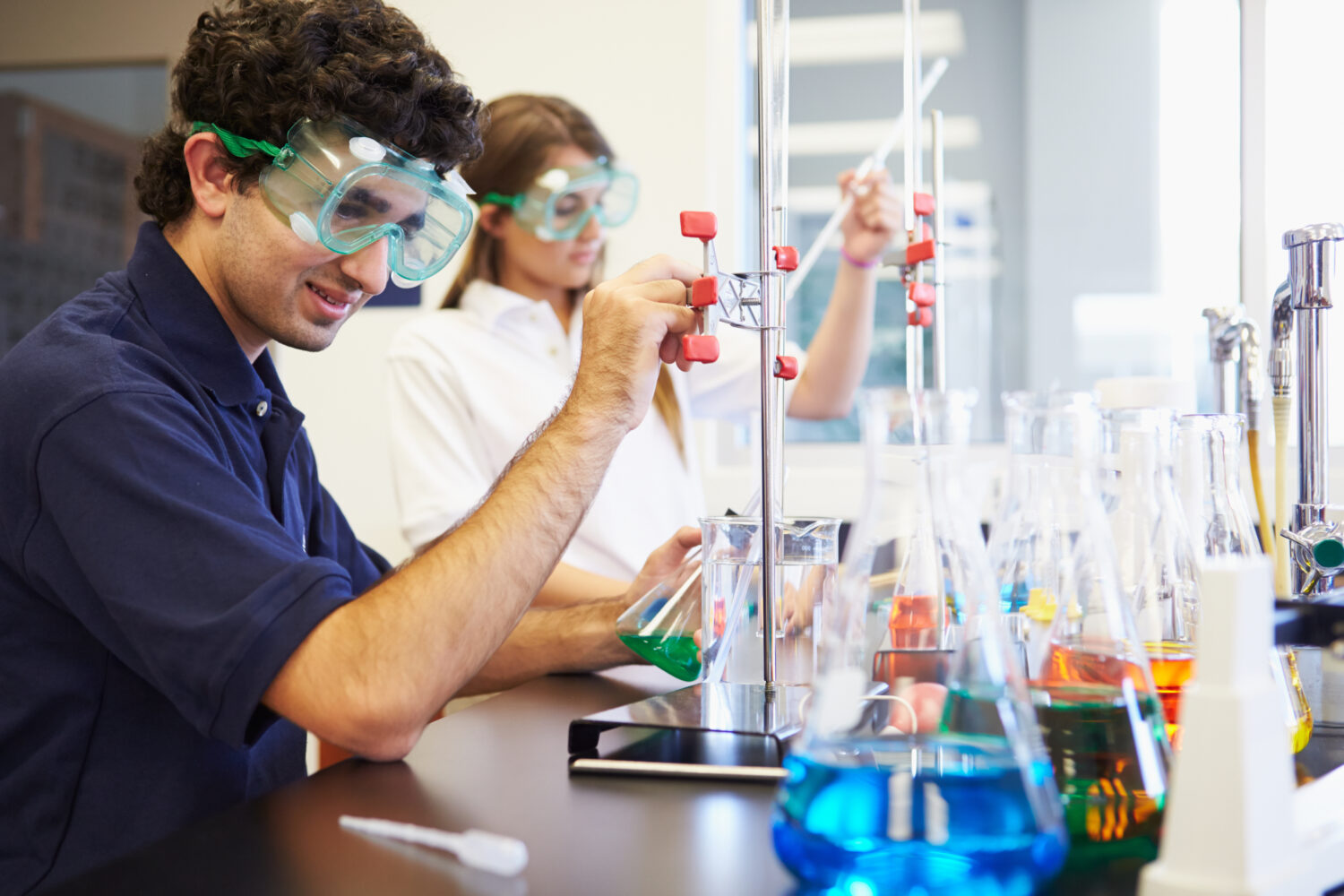What will I learn?
Through studying this course, you will develop the following:
- An understanding of how matter creates the universe around us;
- An appreciation of how chemical reactions drive all living things;
- A respect for the different industrial and medical processes that build our society;
- An in depth analysis of the properties of substances from the nano scale to the macro scale;
- A respect for the scientific method and a respect for evidence;
- Critical thinking skills.
What is the structure of the course?
All students will study the following core topics:
Stoichiometric relationships, Atomic structure, Periodicity, Chemical bonding and structure, Energetics/ thermochemistry, Chemical kinetics, Equilibrium, Acids and bases, Redox processes, Organic chemistry, Measurement and data processing.
Higher Level students will also study these additional topics:
Atomic structure, The periodic table – transition metals, Chemical bonding and structure, Energetics/ thermochemistry, Chemical kinetics, Equilibria, Acids and bases, Redox processes, Organic chemistry, Measurements and analysis.
In addition to this, HL students study one out of a choice of four additional topics. These are:
Material, Biochemistry, Energy, Medicinal chemistry.
Higher Levels
Part 1: Knowledge
Demonstrate knowledge of:
- terminology, facts and concepts;
- skills, techniques and methodologies.
Part 2: Apply
Apply knowledge to:
- terminology and concepts;
- skills, techniques and methodologies.
Part 3: Formulate, analyse and evaluate
Formulate, analyse and evaluate:
- hypotheses, research questions and predictions;
- methodologies and techniques;
- primary and secondary data;
- scientific explanations.
Part 4: Investigation
Demonstrate the appropriate research, experimental, and personal skills necessary to carry out insightful and ethical investigations.
How will I be assessed?
Assessment
Higher Level
Part 1: Knowledge
External – Paper 1 (1 hour) – 40 multiple choice questions (20% of final grade)
Part 2: Apply
External – Paper 2 (2.25 hours) – Data based, short answer and extended response questions (36% of final grade)
Part 3: Formulate, analyse and evaluate
External – Paper 3 (1.25 hours) – Data based, short answer and extended response questions (24% of final grade)
Part 4: Investigation
Internal (10 hours) – An investigation and write-up, usually 6-12 pages in length (20% of final grade)
Frequently Asked Questions
Which CAS opportunities are available?
Science Club, Extra-Curricular Trips, Debating Club.
Which opportunities for further study are available?
Studying Chemistry will open doors to many fascinating and rewarding careers and opportunities to study further. Chemistry will be a perfect starting point if you wish to study medicine, biotechnology, nanotechnology, biomedicine, chemical engineering, veterinary science, forensics, industrial chemistry and many more.



